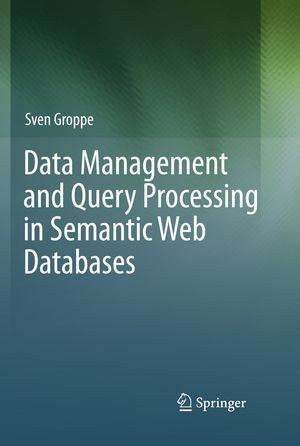The Semantic Web, which is intended to establish a machine-understandable Web, is currently changing from being an emerging trend to a technology used in complex real-world applications. A number of standards and techniques have been developed by the World Wide Web Consortium (W3C), e.g., the Resource Description Framework (RDF), which provides a general method for conceptual descriptions for Web resources, and SPARQL, an RDF querying language. Recent examples of large RDF data with billions of facts include the UniProt comprehensive catalog of protein sequence, function and annotation data, the RDF data extracted from Wikipedia, and Princeton University's WordNet. Clearly, querying performance has become a key issue for Semantic Web applications.
In his book, Groppe details various aspects of high-performance Semantic Web data management and query processing. His presentation fills the gap between Semantic Web and database books, which either fail to take into account the performance issues of large-scale data management or fail to exploit the special properties of Semantic Web data models and queries. After a general introduction to the relevant Semantic Web standards, he presents specialized indexing and sorting algorithms, adapted approaches for logical and physical query optimization, optimization possibilities when using the parallel database technologies of today's multicore processors, and visual and embedded query languages.
Groppe primarily targets researchers, students, and developers of large-scale Semantic Web applications. On the complementary book webpage readers will find additional material, such as an online demonstration of a query engine, and exercises, and their solutions, that challenge their comprehension of the topics presented.

























